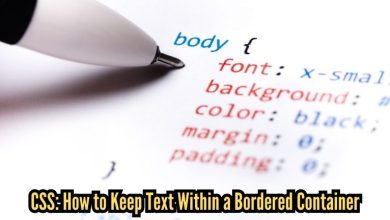How to Learn SQL Effectively: Tips & Resources

Structured Query Language (SQL) is the cornerstone of data management and analysis. Whether you’re a data analyst, software developer, or aspiring data scientist, mastering SQL is an essential step in working effectively with databases. However, like any new skill, learning SQL can be daunting at first. This article outlines proven methods and reliable resources to help you learn SQL effectively and build a strong foundation for your data-driven career.
Why Learning SQL is Important
SQL is used to communicate with and manipulate relational databases. It enables users to retrieve, modify, insert, and delete data in an organized and efficient way. In today’s data-centric world, SQL is a critical tool that empowers professionals to:
- Access and manage large datasets quickly
- Create reports and dashboards
- Support data-driven decision-making
- Collaborate effectively with technical teams
With such widespread applicability across industries, SQL proficiency significantly boosts your employability and technical expertise.
Tips for Learning SQL Effectively
Learning SQL doesn’t have to be overwhelming. With the right approach and consistent practice, you can master it in a relatively short period. Here are some practical tips to guide your learning journey:
1. Understand the Basics Thoroughly
Before diving into complex queries, ensure that you have a strong grasp of the fundamentals. Learn about key concepts such as tables, rows, columns, primary keys, and foreign keys. Knowing how relational databases are structured will help you understand how SQL operates conceptually.
2. Learn by Doing
SQL is a hands-on skill that improves with regular practice. Read about a concept, then immediately try writing and running queries that apply that concept. Interactive platforms like SQLZoo, LeetCode, and W3Schools allow real-time execution of queries, which reinforces understanding.
[ai-img]sql practice, laptop screen, code environment[/ai-img]3. Work on Real-World Projects
To deepen your understanding, try working with real-world datasets. Websites like Kaggle offer access to public datasets where you can practice writing queries to extract insights. This type of applied learning is particularly beneficial when preparing for interviews or job roles that involve large-scale data analysis.
4. Study SQL Syntax and Best Practices
Proper use of syntax and formatting not only helps avoid common errors but also makes your SQL queries more readable and maintainable. Focus on writing clean code using:
- Consistent indentation
- Meaningful aliases
- Proper use of JOINs, subqueries, and aggregate functions
Adopting good habits early on will pay off as you advance in your learning.
5. Engage with the SQL Community
Participating in community forums such as Stack Overflow, Reddit’s r/SQL, or GitHub projects helps expose you to real-world challenges and solutions. You can also learn from others’ experiences, get your questions answered, and even contribute to open-source database projects.
[ai-img]team collaboration, coding, database discussion[/ai-img]Top Resources for Learning SQL
There are countless resources available online to learn SQL. Here are some of the most reliable and widely used:
1. Online Learning Platforms
- Coursera: Offers full SQL courses from universities like Stanford and the University of California.
- DataCamp: Specializes in data science topics and features interactive SQL exercises.
- Codecademy: Provides hands-on lessons with instant feedback.
2. Textbooks and eBooks
- “Learning SQL” by Alan Beaulieu – A beginner-friendly guide with practical examples.
- “SQL for Data Scientists” by Renee M. P. Teate – Covers SQL in the context of data science tasks.
3. Practice-Based Websites
- LeetCode: Offers a variety of SQL challenges for interview preparation.
- Mode Analytics SQL Tutorial: Great for business intelligence and data visualization contexts.
Final Thoughts
Learning SQL is not just about memorizing syntax—it’s about understanding how data is structured and manipulated to generate value. Set a clear learning plan, start small, and progressively tackle more complex queries. By combining theoretical understanding with practical experience and utilizing trustworthy resources, you will be well on your way to becoming proficient in SQL.
As with any technical skill, consistency and curiosity are key. Keep learning, keep querying, and the power of SQL will soon be at your fingertips.



